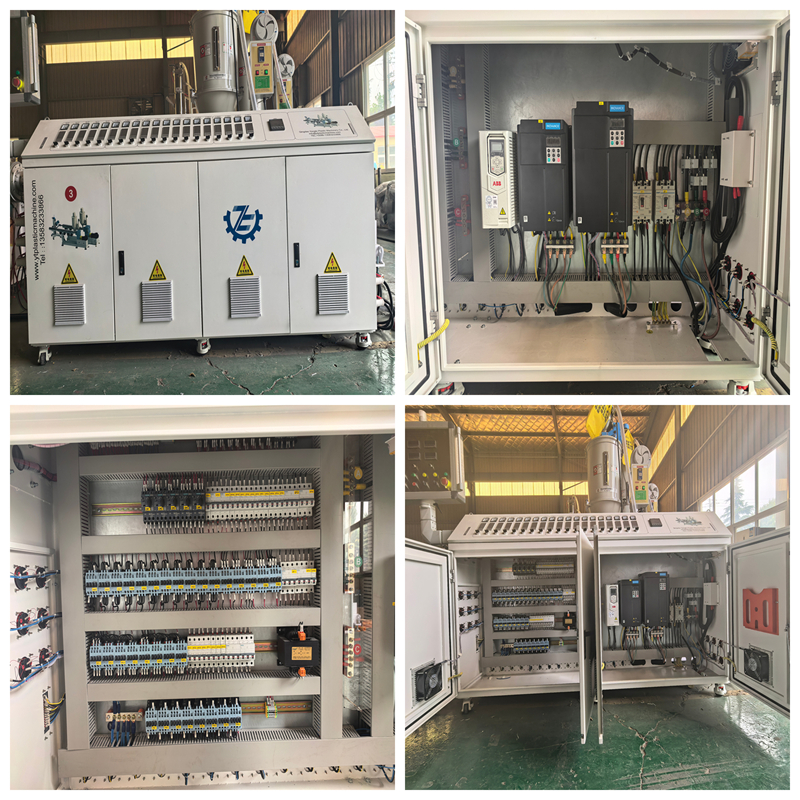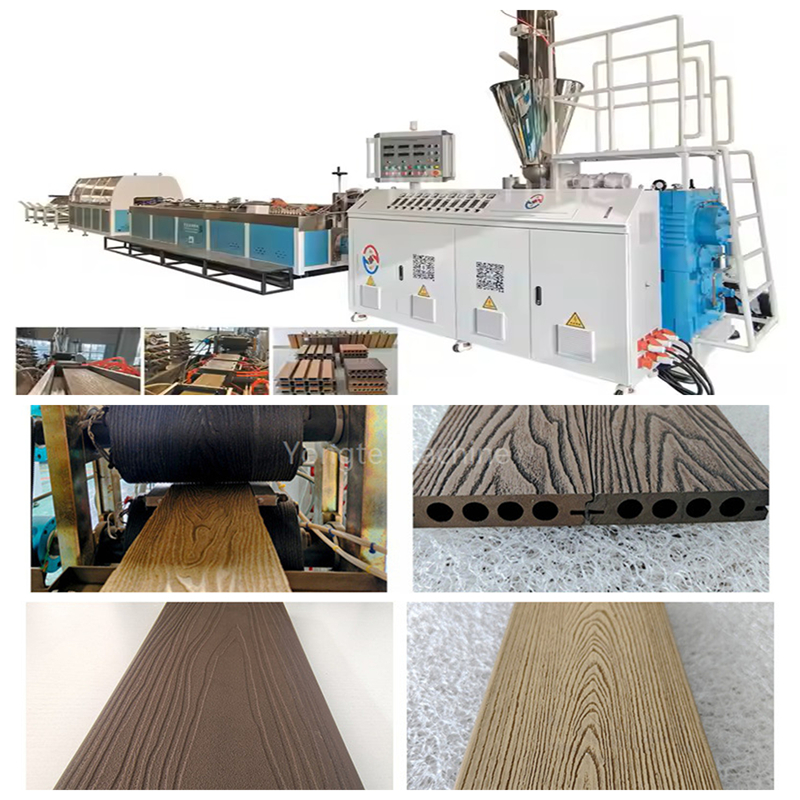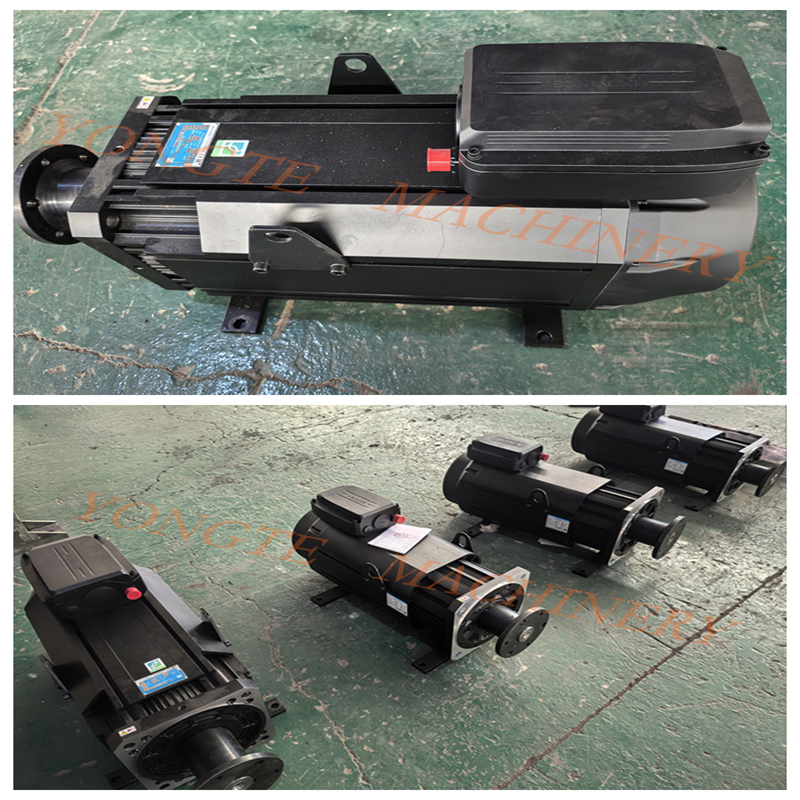Yongte's wood-plastic profile production line completes servo upgrade, delivering enhanced performance and manageable costs.
Yongte Plastic Machinery recently completed a core power upgrade for its entire line of wood-plastic profile production lines, fully adopting high-performance servo systems (servo motors + controllers). Crucially, this major technological upgrade did not result in a significant price increase, providing wood-plastic manufacturers with a more cost-effective, precision-engineered, and energy-efficient production solution.
The stringent requirements for equipment control in wood-plastic profile production are a common pain point in the industry. Traditional production lines rely on conventional motors (open-loop control), which are prone to speed instability when dealing with fluctuations in raw material density and mold resistance. This directly leads to product dimensional deviations and surface defects, increasing defective rates and eroding profits. Yongte's upgrade directly addresses this efficiency bottleneck.

The servo system's control capabilities are central to the upgrade. High-precision encoders monitor motor status in real time, and coupled with a controller with millisecond-level response, the system can instantly correct speed deviations. This ensures unprecedented extruder screw speed stability, significantly improving profile cutting accuracy. A real-world case study shows that after upgrading its thin-wall profile system, a customer saw a significant decrease in scrap rates due to dimensional issues, reduced raw material waste, and a direct boost in profitability.
The servo motor's rapid response advantage is particularly evident in addressing dynamic disturbances in production, such as uneven raw material mixing causing fluctuations in pull tension and impurities forming localized "hard spots." The extruder can instantly adjust torque output to ensure a uniform profile cross-section, while the puller quickly stabilizes tension to maintain profile straightness. A flooring profile manufacturer confirmed that unplanned downtime caused by such issues has been significantly reduced, significantly increasing equipment uptime and capacity utilization, and ensuring order delivery.

Facing demand for high-volume, low-volume production, the servo system's wide speed range solves the challenge of efficient production changeovers. The technical director stated that switching product specifications (for example, from narrow decorative strips to wide wall panels) can be achieved by adjusting parameters through the interface without hardware replacement, achieving a smooth transition from "low-speed precision to high-speed efficiency." This reduces commissioning time by approximately 40%, significantly enhancing production flexibility.
Energy savings are also significant. The servo's vector control technology precisely matches energy output to the load, maintaining high efficiency even under light loads. Tests show that compared to conventional motors, energy consumption is reduced by 15%-30%. Combined with the raw material cost savings from the reduced defective rate, the payback period for equipment upgrades is significantly shortened.

Industry observers point out that Yongte's comprehensive servo system upgrades at affordable prices not only consolidate its technological advantages but also significantly lower the barrier to entry for high-performance servo applications in the wood-plastic composites (WPC) industry. Against the backdrop of increasingly stringent environmental regulations and increasing market demands for precision, servo systems have become an essential choice for improving the quality, increasing efficiency, and reducing energy consumption of WPC profiles, providing a clear opportunity for companies seeking breakthroughs.